Toxic fragrances are a pet peeve of mine. The more I learn about them, the more important I think it is to get rid of them altogether. Here's the good news: if you're worried about artificial fragrances, you're not alone. People are starting to talk about the impact these toxic products have on our health and lives. More and more places are implementing fragrance-free policies. But in order to really make a difference, change needs to start happening in the home. Chemical fragrances are toxic, dangerous, and make life worse for many people. Here's everything you need to know about this class of ingredient, including what you can do to reduce its impact on your life and your world.
Toxic Fragrances - Made to Linger
Have you ever had a bad experience with fragrances? Maybe your friend keeps scented candles or air fresheners in her house or car. They smell great for a few moments, but over time your head start to hurt, your nose starts to itch, and you start having trouble concentrating because of the smell. You don't feel better until you leave. Or maybe it's a mist-based air freshener. You spray it around the house, including where your child is working on his homework. After a few minutes, he starts having trouble focusing. He says his head hurts, and that he wants to go outside. Even though the scent has faded, its impact is still felt by anyone who comes in contact with it. What about those fragrance laden laundry detergents that are lingering on your clothing and being inhaled by you and possibly your child all day long? Toxic fragrances are almost everywhere today. And unlike other harmful ingredients, they're not something you mindfully apply to your skin. The synthetic fragrances found in candles, perfumes, beauty products, air fresheners, laundry detergents, and household cleaners affect everyone who comes in contact with them, including children and pets. There's nothing wrong with wanting your home and clothing to smell nice, but when synthetic fragrances are involved, that lovely aroma comes with a price.
The History of "Fragrance"
If you love the way certain smells make you feel, you're not alone. In fact, you're part of a long history of aroma loving individuals. History is full of examples of pure essential oils having therapeutic purposes, both for their innate properties and the aromas they leave behind. Unfortunately, the toxic fragrances added to today's products are extremely far removed from the essential oils of the past. Fragrances are no longer medicinal. Instead, they're associated with hormonal disruption, allergic reactions, asthma, breathing difficulties, and even some forms of cancer. Historically, people did not spend their time bathed in fresh-smelling aromas. This made pure essential oils worth more than gold in some parts of the ancient world. Today, however, we're almost constantly bombarded by "good" smells. Whether it's your coworker's perfume, your daughter's candle, or the laundry detergent that infuses your clothing and sheets, synthetic fragrances are around us all day long. It's no wonder that they've become known as the new second-hand smoke.
What Can You Actually Find in "Fragrance?"
We like to think of fragrances as being fresh and pure. What could be more natural than a freshly squeezed lemon or a whiff of a floral bouquet? However, whenever you see the word "fragrance" or "parfum" on an ingredients label, what you get is anything but natural. So what are you getting instead? Unfortunately, this question is very difficult to answer, and that's a big part of what makes artificial fragrances so worrying. When you see that a product includes "fragrance," what you're actually getting is a trade secret concoction that could be made up of hundreds of synthetic chemicals. Product manufacturers are not required to list the individual ingredients involved in a fragrance on their product labels. Instead, the word "fragrance" can legally stand in for over 5,000 ingredients. That's a staggering amount. And what's more, none of these ingredients are required to be tested for safety. You may have heard of a common chemical ingredient called "phthalates". Phthalates are a class of ingredients that are linked to hormonal disruption, diabetes, cancer, and fertility issues. The most common use of phthalates is as an ingredient in "fragrance" mixtures added to body care products. Companies are not required to reveal the ingredients making up fragrance mixtures on the labels of products. A study conducted by the Environmental Working Group found phthalates in nearly three-quarters of 72 name-brand products, though none of them listed phthalates as ingredients. And it gets even worse! Think you can avoid toxic fragrances by choosing an "unscented" product? Think again! Many manufacturers create their "unscented" products by adding additional chemicals to scented products. In order to avoid fragrance, you actually end up with a product that has more chemicals in it.
What Are The Risks of Fragrances?
You would think that if fragrances are so widely used, only a small percentage of people would experience health issues in response to them. Unfortunately, this is far from true. More than a third of the US population has reported adverse health effects from being exposed to fragranced products, and this is only what has been reported! These issues include problems breathing, headaches, skin reactions, asthma attacks, and difficulty thinking. And these issues don't just occur if you're the person using the product. A fifth of the people who reported health issues in response to fragrances experienced a reaction due to a fragrance that someone else was wearing. And that's only the beginning. The chemicals lurking in synthetic fragrances have been linked to the following issues as well: Cancer: Have you heard of styrene? It's a chemical found in cigarette smoke and car exhaust. It may not sound like it'd smell very good, but it's surprisingly common among perfumes and cleaning products. It's also been classified by the National Toxicology Program as a suspected carcinogen. Add that to the prevalence of phthalates in fragrance products, and there is a clear link between artificial fragrance and cancer.- Allergic Reactions: Artificial fragrances are one of the top five allergens out there. And they don't just cause the sniffles - exposure can lead to migraines and breathing difficulties as well. The chemicals in toxic fragrances can cause irritation when applied to the skin. An animal model study conducted in 1998 found that when exposed to fragrances, mammals experience a combination of eye, nose, and throat irritation, along with a decrease in airflow when exhaling. These symptoms grew worse after repeated exposure.
- Pregnancy Issues: Research into the impact of fragrances on fetal development are ongoing. However, recent studies have found a growing connection between fetal exposure to certain phthalates (including those found in "fragrance") and behavior issues later on in life. Fragrance chemicals can and do build up in your body, and have been found to be present in breast milk. If you are pregnant or nursing, it is extremely important that you limit your exposure to artificial fragrances as much as possible.
- Asthma and Breathing Issues: If you have asthma, you know how little it takes to trigger an attack. People with asthma are extremely likely to experience problems when they come into contact with scented products. If you have breathing issues to begin with, artificial fragrances can only make them worse.
Where to Find Artificial Fragrances in Your Home
Artificial fragrances are extremely common in products we use every day. Here are a few places to look for them in your home:- Air fresheners, including sprays and wax melts
- Scented candles
- Laundry detergent
- Dryer sheets
- Cleaning products
- Baby lotions, creams and wipes
- Aftershave
- Body moisturizers, lotions and cleansers
- Perfume
How Can I Avoid Fragrances?
Hopefully, all of this has convinced you that toxic fragrances are well worth avoiding. While we can't always control the fragrances we interact with outside our home, we can influence what we use inside of it. Here are a few ways you can reduce the amount of fragrances you use at home.- Learn to live with fewer fragrances: A simple mindset change can make a big difference in the amount of fragrances you're exposed to. Like I said before, it's not a bad thing to want your home to smell nice. However, covering up unwanted odors with heavy synthetic scents isn't the only solution. Instead of masking unpleasant smells, focus on cleaning up the source of the odor. A simple way to do this is to put a bowl of white vinegar on your countertop. Adding a few potted plants around your home can also help remove unpleasant odors from the air.
- Avoid items with fragrances: Be a smart shopper. Look at labels before you buy. If you see the words DBP, DEHP, DEP, fragrance, parfum, or phthalate on the list, put it back on the shelf. Go through the items in your home that are most likely to contain fragrance (listed above) and get rid of anything problematic. If you are in search of completely safe beauty products, check these out.
- Use homemade cleaning products: Save money and avoid fragrances by making your own homemade cleaning products. You can find a ton of simple recipes here. Get creative and add your own essential oils to give them a natural, healthy aroma.
- Rethink laundry day: Laundry products are some of the worst offenders when it comes to artificial fragrances. We're always in contact with our clothes, which means we're always in contact with the fragrances used to launder them. Reduce your exposure by skipping dryer sheets and fabric softener altogether. Trust me - you won't miss them. Choose natural laundry detergents that don't include artificial fragrances. This one step alone can greatly reduce your exposure.
Alternatives to Fragranced Products
Does avoiding toxic fragrances mean you have to give up on good odors altogether? Of course not! Here are a few alternatives to fragranced products that will keep your life smelling lovely:- Deodorize naturally: I already mentioned setting out vinegar and keeping houseplants. You can also deodorize your home by setting out baking soda. If you have a small area to deodorize, try cutting up an apple into small pieces and setting them out in a bowl. If you have a cat, choose unscented litter with bentonite clay to avoid odors without fragrance.
- Add aroma: There are lots of natural ways to add pleasant aromas to your home. Try mixing baking soda with a few drops of essential oils, and keeping it in jars with holes punched in the top. Something as simple as a bit of grated citrus peel in a bowl can add a lovely fragrance to any room. Take it a step further by simmering spices like nutmeg, cinnamon, or cloves on the stovetop.
- Choose natural and organic products: The biggest way to take a stand against the use of toxic fragrances is to hit manufacturers where it hurts - the wallet. Refuse to buy products that contain fragrance and support businesses committed to natural products instead. As always, read ingredient labels closely. Choose products that are scented with essential oils for a safe and pleasant aroma.
Working Together
There's really no way around it - products that contain artificial fragrances are harmful to our health. Even if you don't have an acute reaction to them, the people around you may. The choices you make about the products you bring into your home will impact everyone around you, including your children and pets. These choices can also impact the people you interact with on a daily basis. It's not just an issue that affects you. Awareness of artificial fragrances is just starting to grow. I'd like to challenge you to be a part of an important change. Make the choice to avoid artificial fragrances. Don't buy them. Don't wear them. Don't use them. If we all work together, we can make the world a healthier and safer place for everyone.
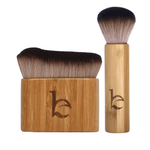
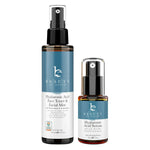















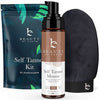

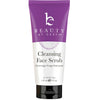


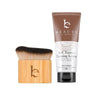









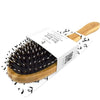
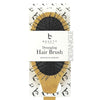
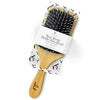

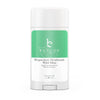



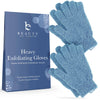
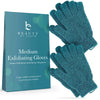
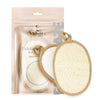
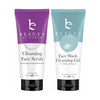










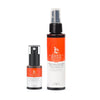




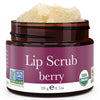
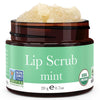
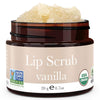





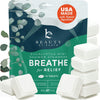
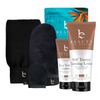
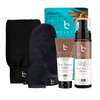











join the conversation